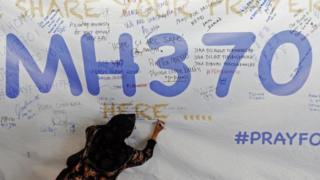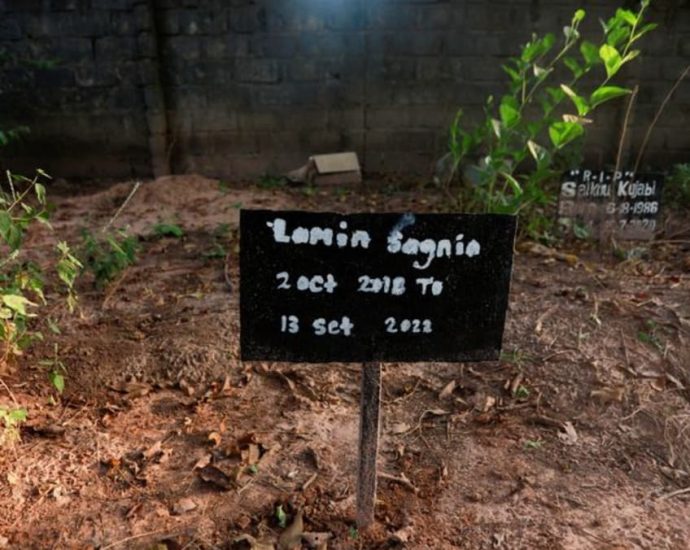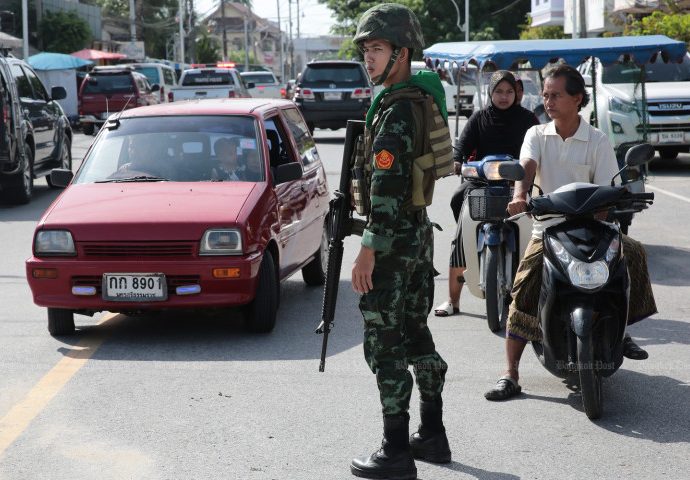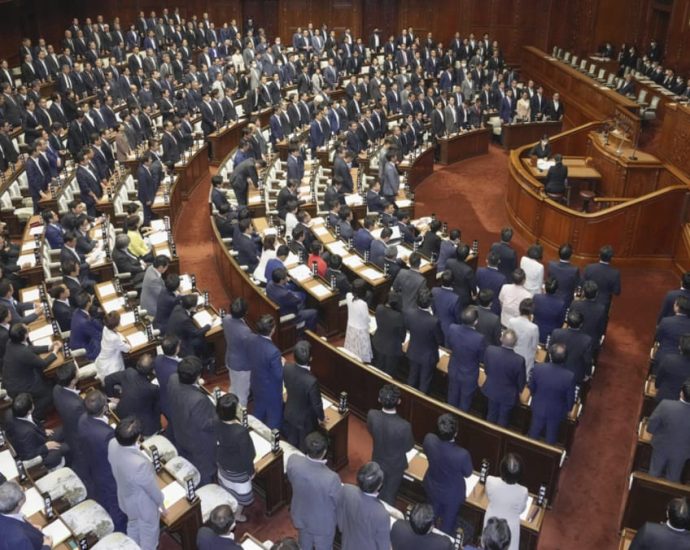US to remove obstacles to defence, high-tech trade with India: NSA Sullivan
NEW DELHI: The United States is set to remove obstacles that prevent smoother trade with India in critical areas such as defence and high technology, US National Security Advisor Jake Sullivan said on Tuesday (Jun 13). Washington sees New Delhi as a vital partner in its efforts to push backContinue Reading
Sasana Symposium 2023: Malaysia’s real-time payment system ‘robust and reliable’ and ‘second to none’, but not hitting max capacity
E-payment use in M’sia has surged to 291 transactions per capita, targeting 400 by 2026
Bank-fintech collaboration crucial, combining trust and security with fintech’s innovation
“What Malaysia has is the benefit of having a real-time payment system that is second to none.” Farhan Ahmad, Group CEO of PayNet who was speaking at the Sasana Symposium 2023 (SS2023)…Continue Reading
MH370 joke: Malaysia asks Interpol to track down comedian
 Getty Images
Getty ImagesMalaysia is seeking Interpol’s help in tracking down a New York-based comedian who joked about the missing Malaysia Airlines flight MH370.
Jocelyn Chia, a US national who grew up in Singapore, is being investigated under laws related to incitement and offensive online content, police say.
Her joke, posted online last week, prompted an official protest from Malaysia and an apology from Singapore.
MH370 went missing after taking off from Singapore in March 2014.
Despite a four-year search in the Indian Ocean, the main body of the plane was never found. All 239 people on board are presumed dead.
On Tuesday Malaysian national police chief Acryl Sani Abdullah Sani said an application was going to be filed with Interpol to get Ms Chia’s “full identity” and “latest location”.
The row began after she posted a clip of her recent stand-up set at Manhattan’s Comedy Cellar venue.
It included a routine about the historic rivalry between Singapore and Malaysia, which were once briefly part of the same country.
Noting that Singapore had risen to be a “first-world country” while Malaysia remained “developing”, she joked that Malaysian airplanes “cannot fly”.
Ms Chia added: “Malaysian Airlines going missing not funny huh? Some jokes don’t land.”
The video, which created uproar in Malaysia, was removed by TikTok, which cited a violation of its hate-speech guidelines.
Singapore’s ambassador to Malaysia said Ms Chia did not speak for Singaporeans. Vivian Balakrishnan, Singapore’s foreign minister, condemned her “horrendous statements”.
On Sunday, Ms Chia told CNN that she had performed the routine “more than 100 times” without any problems.
She added that she stood by the joke and that the clip had been taken out of context.
Related Topics
-
-
29 May 2018
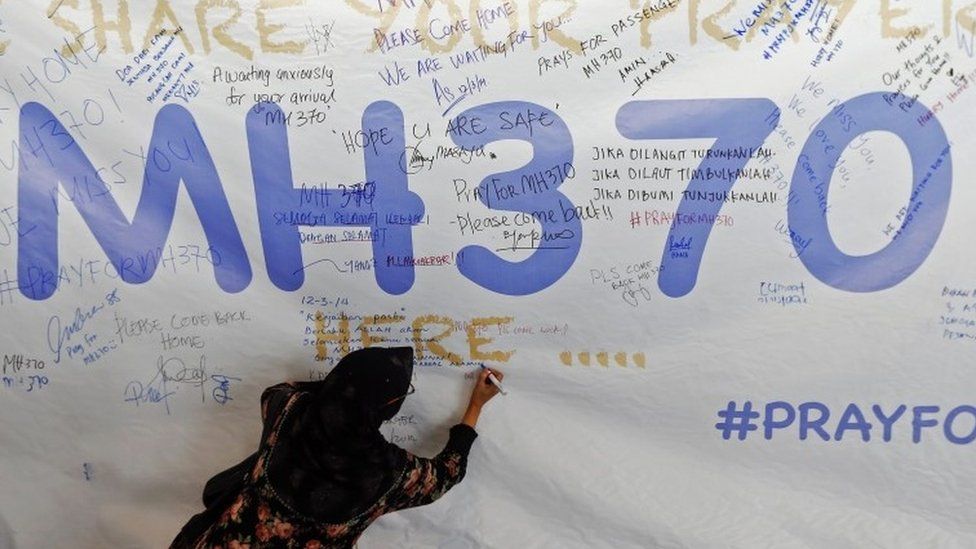
-
-
-
22 May 2018
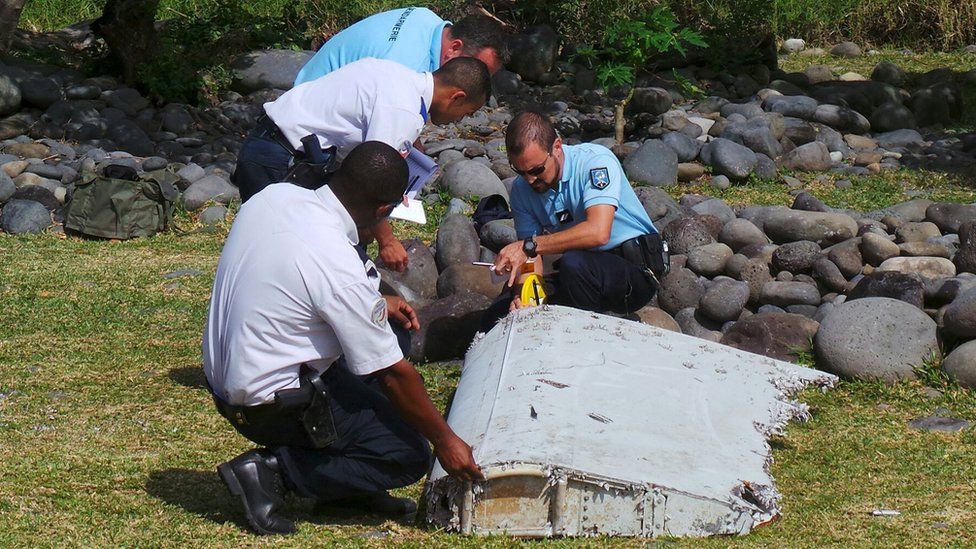
-
India probes bribery claim in toxic cough syrup tests
NEW DELHI: Indian authorities have launched an inquiry into an allegation that a local pharmaceutical regulator, in return for a bribe, helped switch samples of cough syrups that the World Health Organization (WHO) had linked to the deaths of children in Gambia before the samples were tested at an IndianContinue Reading
PM wants swift action on âPatani Stateâ probe
Security agencies looking into reports that activists are promoting independence referendum

Prime Minister Prayut Chan-o-cha on Tuesday urged security agencies to speed up investigating a group of activists calling for a referendum on establishing an independent Muslim “Patani State” in the South.
Emerging from the weekly cabinet meeting, Gen Prayut said the government’s legal team and security agencies were investigating, and the authorities were checking media reports about a politician pulling strings.
However, he insisted the issue would be dealt with under the law.
“The most important thing is that we agree the gravity of the unrest in the far South should not go back to being as intense as before,” he told reporters.
“We intend to maintain peace in the region much as we can through the peace process.”
The prime minister added, however, that there could be disruption to peace efforts during the transition to the new government.
The authorities were spurred into action by the establishment of Pelajar Bangsa (“National Students”), a youth group representing students from the three southernmost provinces, during a seminar on the Pattani campus of Prince of Songkla University last week.
It is believed the group is the latest incarnation of the Federation of Patani Students and Youth (PerMas), which was disbanded in November 2021.
The seminar was titled “Self-Determination and Patani Peace”.
Speakers at the seminar included Worawit Baru, deputy leader of the Prachachat Party and MP-elect for Pattani; and Hakim Pongtigor, deputy secretary-general of the Fair Party.
The two parties are part of the prospective coalition led by the Move Forward Party, which is seeking to form the next government.
At the seminar, participants were given a ballot paper on which they were asked to vote for a referendum on an independent “Patani” state — the spelling preferred by those in favour of self-determination.
A picture of the ballot shared on social media prompted a reaction from netizens as well as security agencies.
However, both Prachachat and Fair have denied having anything to do with the ballot. They insisted they never entertained the thought, let alone acted, to support an independent state of Patani.
Move Forward Party leader and prime ministerial candidate Pita Limjaroenrat has also said he opposes the idea of an independence referendum.
Lt Gen Santi Sakuntanak, the commander of the Fourth Army Region that is responsible for the South, chaired a meeting on Tuesday to follow up on the investigation into the Patani State seminar.
He said the investigation was making headway as it was looking into details of the seminar and who is behind the independent Patani campaign.
He said the investigation gave strong indications that the law was violated at the seminar, adding that he had instructed investigators to gather evidence quickly.
BMAâs Green Line debt âcanât be solvedâ
Prayut says caretaker cabinet’s hands are tied and new government will have to make a decision

The overdue payment of around 50 billion baht that the Bangkok Metropolitan Administration (BMA) owes to Bangkok Mass Transit System Plc (BTSC) will have to wait for a new government to resolve, the caretaker government said on Tuesday.
“We wish we could resolve this problem. We’ve tried to have it taken care of but now we have to admit it can’t be solved. Lately, multiple factors have prevented that from happening,” Prime Minister Prayut Chan-o-cha after he met with Interior Minister Anupong Paojinda to discuss the Green Line debt, just after the weekly cabinet meeting.
Gen Prayut did not elaborate on the factors he alluded to that were impeding the government’s attempt to resolve the debt issue.
However an informed source said one was the Election Commission’s regulation limiting the ability of a caretaker cabinet to approve large budgets.
BTSC, which operates the Green Line, hopes to receive a first instalment — or about 20 billion baht — when the Bangkok Council convenes in early July, said the same source.
Bangkok governor Chadchart Sittipunt met with BTSC chairman Keeree Kanjanapas on Monday and said he would request the BMA council’s approval of the proposed 20-billion-baht payment, said the source.
The 50-billion-baht debt has been incurred through Krungthep Thanakom (KT), a business arm of the BMA, which hired BTSC to install the electrical and mechanical systems of the Green Line extensions and operate the electric rail service, said the same source.
Since the BMA lacks the funds to pay off the entire debt, the only option is to defer a decision on the debt payment until the new government takes office, Gen Anupong said.
He said some measures will have to be adopted to ease the burden shouldered by BTSC while it continues to operate the Green Line.
Mr Chadchart said the BMA had requested via the Ministry of Interior a decision from the caretaker cabinet on the debt payment issue, but he wasn’t sure if ministers were planning to discuss it this week.
Deputy Prime Minister Wissanu Krea-ngam said the cabinet had not yet received any such request. He said the BMA must first decide what action should be taken on the overdue debt payment and then submit it to the cabinet for endorsement.
Japan lawmakers advance controversial Bill to promote LGBTQ awareness
TOKYO: Japan’s lower house on Tuesday (Jun 13) approved proposed legislation aimed at “promoting understanding” of LGBTQ issues but campaigners criticised the Bill for its watered-down language. The country’s coalition government had debated the wording for months, with conservative politicians saying an anti-discrimination clause could deepen social divisions or openContinue Reading
India denies threatening Twitter with shutdown
NEW DELHI: India on Tuesday (Jun 13) denied claims it had threatened to shut down Twitter inside the country if it did not block accounts critical of Prime Minister Narendra Modi’s government. The world’s biggest democracy petitions Twitter for content removals more than almost any other country, and the platform regularlyContinue Reading
NATO to set up liaison office in Tokyo, beef up regional ties: Report
TOKYO: NATO will set up a liaison office in Tokyo in 2024 and use it as a hub for cooperation with Australia, Japan, New Zealand and South Korea, the Nikkei newspaper said on Tuesday (Jun 13), a plan China has described as unwelcome. In May, Japan’s ambassador to the UnitedContinue Reading
âRevealing Secretsâ: Australiaâs signals intelligence decoded
The intelligence industry is habitually accused of being too embedded in its own protective culture, trade-craft and jargon.
As an antidote to the murky world of intelligence, Revealing Secrets, by academic John Blaxland and distinguished national security expert Clare Birgin, provides a highly comprehensive, well-researched and captivating account of the history and role of Australian Signals intelligence in national security.
Succinct and accessible, it is pitched for readers who care about transparency and security alike, with enough insight into matters such as cyber security developments and digital war games to satisfy computer and technology geeks.
Signals intelligence, or Sigint, is about eavesdropping on messages and data. It is the intelligence (or information) gained by the collection and interception of communications and electronic systems that comprise a wide range of “signals” – such as radios, radars, telephone systems and computer networks. It can involve code-breaking and interpretation.
The Australian Signals Directorate, established in 1947 as a signals intelligence and security agency, intercepts communication from countries around the world, learning about the threats and intentions of targets abroad.
Its modern-day capabilities – both defensive and offensive – also play an important role in trying to head off cyber attacks against Australia by disrupting offshore, cyber-enabled crime.
But the book, which traverses the two world wars and post-war national and international Sigint arrangements, points out that the directorate is only a part of Australia’s Sigint (and electronic warfare) history.
Such a broad scope provides the reader with an insightful journey through the management and methods of national security affairs. The book unpacks the switch from analogue to digital technology, to the so-called fifth dimension of cyber in modern warfare (which exists alongside sea, land, air and space).
It covers controversies such as the value of Pine Gap’s shared intelligence arrangements with the United States (Pine Gap is a joint Sigint facility located in central Australia) and explores the government’s ongoing efforts to understand or assess the capabilities, intentions or activities of foreign adversaries.

Revealing Secrets commemorates past intelligence accomplishments (and reflects on failures) while stimulating debate on modern-day intelligence systems in an information age. Subjects explored include crypt-analysis – the study of encrypted text and messages – and the evolution of machinery to aid such deciphering.
There is also an acknowledgment of gender biases in this field. In the 1940s, for instance, there was a reluctance to employ skilled female telegraphists in the army despite the shortage of code-breaking male counterparts.
Poorly understood
Broadly speaking, the intelligence function involves the collection, analysis and dissemination of information to support decision-making. This intelligence may have been intercepted from the electronic signals and systems of a particular target, such as a coded enemy message.
Yet as Blaxland has previously noted, signals intelligence has repeatedly been portrayed as the “poor cousin” of human intelligence and other forms of data.
One persistent dilemma is the role and impact of signals intelligence is highly tricky for the general public to access or comprehend. Much of what the directorate does, for instance, is highly classified. Yet the provision of signals intelligence is often mooted by policymakers and defense planners as an indispensable secret asset for tactical and strategic intelligence.
In short, much of the history of Sigint intelligence – revealing secrets and protecting one’s own – is tacit and poorly understood. Indeed, for a long time, the role and increasingly intrusive powers of Sigint tended to be overlooked, or the subject of speculation.
In 2013, whistle-blower Edward Snowden notoriously exposed the existence of previously classified mass intelligence-gathering surveillance programs run by the US National Security Agency.
The authors of this book acknowledge the intelligence dump about the agency’s surveillance net did “cast a long shadow” and caused “great citizen concern about the trustworthiness of national security institutions with vast and potentially intrusive powers.”

Paradoxically, the Snowden leaks may have inadvertently coaxed many Western governments to be more secret and less open – although such an instinct could also be attributed to other concurrent political happenings.
Even so, one area in which this book excels is in “opening the door” to a deeper appreciation of Australia’s role in global events. Operations have included sabotaging enemy communications and denying the Islamic State (also known as ISIS) the ability to connect to the internet – from a base in Canberra – to give cover to Iraqi and partner troops in the Middle East.
Revealing Secrets also reveals how signals intelligence has influenced major diplomatic actions and defense design.
For instance, the decoding of the German Zimmerman telegram by British cryptographers in 1917 helped to draw the US into the first world war. In the 1930s, Sigint was used to tackle Germany’s Enigma code – the breaking of German communication messaging within their armed forces by Allied parties.
Signals intelligence was valuable during military campaigns in second world war and Cold War–era operations in locations like Malaya, Borneo and Vietnam.
The book is filled with noteworthy Australian historical characters, such as electrical engineer Florence Violet McKenzie, who, along with her husband Cecil, founded the Women’s Emergency Signalling Corps in 1939 to provide signals training to women.
Controversies
Clearly, UK and US ties have significantly helped shape Australia’s Sigint capabilities, albeit with benefits and pitfalls. The authors shrewdly capture various controversial aspects of the use and goals of intelligence.
They include the Australian government’s A$9.9 billion REDSPICE project, announced last year, which pledged to double the directorate’s workforce and increase its protective and offensive cyber capabilities as part of Australia’s “cyber deterrence” posture.
Whether Australia should use offensive cyber capabilities against other actors and, if so, against who, remains highly contentious. This ambitious project has raised many unanswered questions about what “offensive” digital capabilities and “cyber-hunt activities” might entail. There are potential ramifications with regard to domestic and international law, as well as the norms of good international behavior.
The authors conclude there are considerable advantages to retaining a joint facility such as Pine Gap. It can assist with arms control verification and provide early warning of missile launches. But the overall pros and cons of Australia’s investment in intelligence infrastructure shared with the US feed into debates about sovereignty, dependency and how future security goals with the US might differ.
The book guides readers through a shadowy side of government, reflecting on legal implications and ethical dilemmas. Australia’s regulation of electronic surveillance remains highly complex and convoluted.
Intelligence functions and powers are often blurred within a hyper-legislative context and are declared, the authors write, without “[…] a clear explanation of what is being done and why it is being done.”
The expansion of covert surveillance and data interception within law enforcement and various intelligence agencies has sparked debate about human rights implications here. Australia does not have a Bill of Rights, unlike most other similar liberal democracies.
‘Not all Australians are the good guys’
The book shows various misinterpretations and misconstructions of Sigint can be explained, in part, due to its highly specialized nature and the concealment necessary to maintain operational effectiveness.
There has also been a reluctance by outsiders to write about Sigint because they do not have access to all the facts about the rationale and workings of electronic eavesdropping, the breakneck speed of technology and intricacies of communications in statecraft.
The authors hope that their book will act as “[…] a preview, or ‘taster’, pointing to where further research is needed […].”
Such a framing is timely given the directorate’s director-general, Rachel Noble, has defended the need to collect intelligence on Australians for Sigint and cyber security operations. “Not all Australians,” she has said, “are the good guys.” Noble has clarified that the directorate cannot, under law, conduct mass surveillance on Australians.

Intelligence does play a substantial role in efforts to better identify and investigate potential threats, avoiding strategic surprise and defending core national interests. And by explaining various facets of Australian Sigint, the book advances the logic that security planners need to be prepared and forward-thinking in dealing with threat assessments.
The history of Sigint itself does reveal the quality and usefulness of the intelligence to support foreign policy and defence preparedness.
It is by no means unreasonable for intelligence agencies to wish to preserve sensitive technical capabilities. But conversely the public do expect a high standard of apolitical conduct in “speaking truth to power.” The actions of all agencies must be properly scrutinized.
Digital spying and privacy intrusions should be proportionate and justifiable, balanced with democratic safeguards and adequate checks and balances. In short, snooping on everyone because you can does not mean you should. At its heart, the book is both a reminder of the merits and virtues of actionable intelligence and arguments for checks and balances on government error and excess.
Despite the inherent vulnerabilities of interconnected cyber-space networks to hacking and exploitation, cloak-and-dagger policies make it hard to know if we are prioritising astute budget commitments and directing resources to the right strategies.
Interestingly, Revealing Secrets was originally commissioned (at a cost of $2.2 million) by the former head of the directorate. It was abruptly shelved due to what Noble later described as “the balance of the content.”
Despite not having privileged access to official secret records, Revealing Secrets is a comprehensive deep-dive, bringing to life to previously unmapped archival information and drawing upon both an impressive quantity of associated open-source material.
Blaxland and Bergin have produced a high-quality and clear-eyed piece of scholarship, offering a sweeping authoritative historical perspective on one of the most secret branches of Australian intelligence.
Daniel Baldino is Senior Lecturer in Politics and International Relations, University of Notre Dame Australia
This article is republished from The Conversation under a Creative Commons license. Read the original article.



